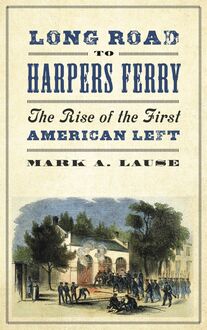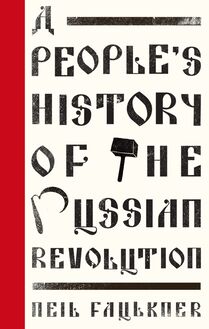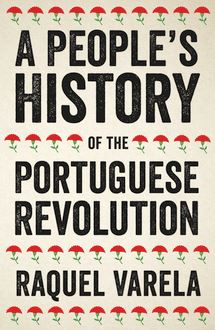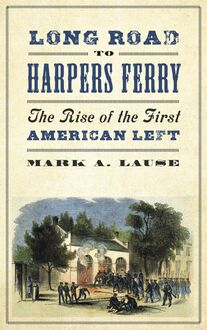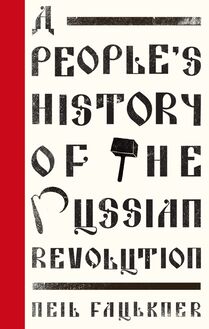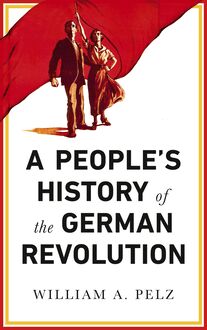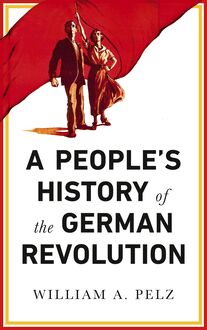-
 Univers
Univers
-
 Ebooks
Ebooks
-
 Livres audio
Livres audio
-
 Presse
Presse
-
 Podcasts
Podcasts
-
 BD
BD
-
 Documents
Documents
-
- Cours
- Révisions
- Ressources pédagogiques
- Sciences de l’éducation
- Manuels scolaires
- Langues
- Travaux de classe
- Annales de BEP
- Etudes supérieures
- Maternelle et primaire
- Fiches de lecture
- Orientation scolaire
- Méthodologie
- Corrigés de devoir
- Annales d’examens et concours
- Annales du bac
- Annales du brevet
- Rapports de stage
La lecture à portée de main
Vous pourrez modifier la taille du texte de cet ouvrage
Découvre YouScribe en t'inscrivant gratuitement
Je m'inscrisDécouvre YouScribe en t'inscrivant gratuitement
Je m'inscrisEn savoir plus
Vous pourrez modifier la taille du texte de cet ouvrage
En savoir plus

Description
Faulkner rejects caricatures of Lenin and the Bolsheviks as authoritarian conspirators, 'democratic-centralists' or the progenitors of Stalinist dictatorship; though short-lived, the Revolution of October 1917 was an explosion of democracy and creativity. Crushed by bloody counter-revolution, its socialist vision was ultimately displaced by a monstrous form of bureaucratic state-capitalism.
Laced with first-hand testimony, this history rescues the democratic essence of the revolution from its detractors and deniers, offering a perfect primer for the modern reader.
Published in partnership with the Left Book Club.
Series Preface
Acknowledgements
Dates, Names, Prices and Wages
Maps
Introduction
Part I: The Spark, 1825-1916
1. The Regime
2. The Revolutionaries
3. Lenin and the Bolsheviks
4. The Great War
Part II: The Tempest, 1917
5. The February Revolution
6. Dual Power
7. Counter-Revolution
8. The October Days
Part III: The Darkness, 1918-1938
9. World Revolution?
10. The Revolution Besieged
11. Stalinism
Epilogue: A Century of War and Revolution
Timeline
Bibliography
Index
Sujets
1914-1918
Political Parties
Political Process
Political Ideologies
Political Freedom
20th Century
Modern
HISTORY
POLITICAL SCIENCE
Histoire
Revolutions
Andréi Búbnov
Lavr Kornílov
Soviets
Aleksandr Kérenski
León Trotsky
Moscú
Lenin
Iósif Stalin
Chechenia
Saint Petersburg
Vladimir Lenin
Communism
Revolutionary
World War I
Andrei Bubnov
Russian Ground Forces
Laborer
Interwar period
Modern history
Russian Revolution
Constitutional Democratic Party
Central Executive Committee
February Revolution
Menshevik
General officer
Military
Peasant
Soviet Union
Revolution
Russia
Political party
Politics
October Revolution
Moscow
Leon Trotsky
Joseph Stalin
Economics
Chechnya
Bolshevik
Alexander Kerensky
Duma
General
Révolution russe
Kornilov
Moscow (homonymie)
Julius Martov
Communisme
Obermodern-Zutzendorf
Soviet
Alexandre Kerensky
Lénine
Léon Trotski
Joseph Staline
Saint-Pétersbourg
Première Guerre mondiale
1917
Russie
Europe
Informations
| Publié par | Pluto Press |
| Date de parution | 20 janvier 2017 |
| Nombre de lectures | 0 |
| EAN13 | 9781786800206 |
| Langue | English |
Informations légales : prix de location à la page 0,0005€. Cette information est donnée uniquement à titre indicatif conformément à la législation en vigueur.
Extrait
A People s History of the Russian Revolution
Join the Left Book Club
Membership of the Left Book Club costs just 40 a year, for which you will receive four specially commissioned or licensed titles each year, plus other members benefits, such as access to events, newsletters, and special offers on non-LBC titles.
To join please visit www.leftbookclub.com
Also available
Here We Stand Women Changing the World Helena Earnshaw and Angharad Penrhyn Jones
Being Red A Politics for the Future Ken Livingstone
Syriza Inside the Labyrinth Kevin Ovenden Foreword by Paul Mason
Sound System The Political Power of Music Dave Randall
Cut Out Living Without Welfare Jeremy Seabrook
The Rent Trap How We Fell Into It and How We Get Out of It Rosie Walker and Samir Jeraj
A People s History of the Russian Revolution
Neil Faulkner
First published 2017 by Pluto Press
345 Archway Road, London N6 5AA
www.plutobooks.com
Copyright Neil Faulkner 2017
The right of Neil Faulkner to be identified as the author of this work has been asserted by him in accordance with the Copyright, Designs and Patents Act 1988.
The Left Book Club, founded in 2014, company number 9338285 pays homage to the original Left Book Club founded by Victor Gollancz in 1936.
British Library Cataloguing in Publication Data
A catalogue record for this book is available from the British Library
ISBN 978 0 7453 9904 1 Hardback
ISBN 978 0 7453 9903 4 Paperback
ISBN 978 1 7868 0019 0 PDF eBook
ISBN 978 1 7868 0021 3 Kindle eBook
ISBN 978 1 7868 0020 6 EPUB eBook
This book is printed on paper suitable for recycling and made from fully managed and sustained forest sources. Logging, pulping and manufacturing processes are expected to conform to the environmental standards of the country of origin.
Typeset by Stanford DTP Services, Northampton, England
Simultaneously printed in the United Kingdom and United States of America
Contents
Series Preface
Acknowledgements
Dates, Names, Prices, and Wages
Maps
Introduction
PART I: THE SPARK, 1825-1916
1 The Regime
2 The Revolutionaries
3 Lenin and the Bolsheviks
4 The Great War
PART II: THE TEMPEST, 1917
5 The February Revolution
6 Dual Power
7 Counter-Revolution
8 The October Days
PART III: THE DARKNESS, 1918-1938
9 World Revolution?
10 The Revolution Besieged
11 Stalinism
Epilogue: A Century of War and Revolution
Timeline
Bibliography
Index
Series Preface
The first Left Book Club (1936-48) had 57,000 members, had distributed 2 million books, and had formed 1,200 workplace and local groups by the time it peaked in 1939. LBC members were active throughout the labour and radical movement at the time, and the Club became an educational mass movement, remodelling British public opinion and contributing substantially to the Labour landslide of 1945 and the construction of the welfare state.
Publisher Victor Gollancz, the driving force, saw the LBC as a movement against poverty, fascism, and the growing threat of war. He aimed to resist the tide of austerity and appeasement, and to present radical ideas for progressive social change in the interests of working people. The Club was about enlightenment, empowerment, and collective organisation.
The world today faces a crisis on the scale of the 1930s. Capitalism is trapped in a long-term crisis. Financialisation and austerity are shrinking demand, deepening the depression, and widening social inequalities. The social fabric is being torn apart. International relations are increasingly tense and militarised. War threatens on several fronts, while fascist and racist organisations are gaining ground across much of Europe. Global warming threatens the planet and the whole of humanity with climate catastrophe. Workplace organisation has been weakened, and social democratic parties have been hollowed out by acceptance of pro-market dogma. Society has become more atomised, and mainstream politics suffers an acute democratic deficit.
Yet the last decade has seen historically unprecedented levels of participation in street protest, implying a mass audience for progressive alternatives. But socialist ideas are no longer, as in the immediate post-war period, in the tea . One of neoliberalism s achievements has been to undermine ideas of solidarity, collective provision, and public service.
The Left Book Club aspires to meet this ideological challenge. Our aim is to offer high-quality books at affordable prices that are carefully selected to address the central issues of the day and to be accessible to a wide general audience. Our list represents the full range of progressive traditions, perspectives, and ideas. We hope the books will be used as the basis of reading circles, discussion groups, and other educational and cultural activities relevant to developing, sharing, and disseminating ideas for change in the interests of the common people at home and abroad.
The Left Book Club collective
Acknowledgements
My understanding of the Russian Revolution has been shaped by countless lectures, meetings, and discussions involving hundreds of revolutionary activists. It is impossible to recall, let alone list, all those who, at different times and in different ways, have influenced my perspective.
I should perhaps record that, from 1980 to 2010, I was an active member of the Socialist Workers Party in Britain. For much of that time, especially in the 1980s, I believe the SWP to have been a small but effective revolutionary organisation that punched above its weight. I also believe it to have been a powerhouse of Marxist theory. Its degeneration into a self-referencing and self-perpetuating sect is, in my view, a tragic development in the history of the British Left.
But it would be dishonest not to make it clear that most of what I know about revolution - both as historian and activist - I owe to the SWP of the 1980s. I therefore owe a deep debt of gratitude to all the SWP comrades alongside whom I fought the Nazis, supported the miners, refused to pay the poll tax, and, when we had time, debated the history of the international working-class movement.
Since 2010, I have formed many new and rewarding political friendships, and these have contributed, I believe, to a richer, more nuanced understanding of the Russian Revolution. Not least, the degeneration of the British Left over the last two or three decades - which is a generic process, not something restricted to the SWP - has given me a clearer understanding that revolutionary parties are built by the masses themselves in struggle; that is, they do not arise from voluntarism, from acts of will by self-appointed revolutionary vanguards ; they do not arise from what has sometimes been called the primitive accumulation of cadre . Revolutionaries should organise. But they should never proclaim themselves to be the party. Only the masses in struggle can create a party of revolution.
I should give special thanks to two of those new friends, David Castle of Pluto Press and Nik Gorecki of Housmans Bookshop and the Left Book Club, for critical comments on the first draft of this book. The final version is, in consequence, much improved.
Dates, Names, Prices, and Wages
Russia used the Julian Calendar until 1918. This was 13 days behind the Gregorian Calendar. Thus, for example, the Storming of the Winter Palace took place on 25/26 October according to the Julian Calendar, but 7/8 November according to the Gregorian. I have used Julian dates for events in Russia before the adoption of the Gregorian system.
The transliteration of Russian names into English is inconsistent. In each case, I have tried to choose a convenient form and stick to it. A further problem arises from changes in name, of which there have been many, due to war and revolution, in the last century of Russian history. St Petersburg is an obvious example: it has been St Petersburg (before the First World War), Petrograd (1914-24), Leningrad (1924-91), and is now St Petersburg again.
There are occasional references to prices, so it is worth knowing that one rouble was equal to about 50 US cents, and there were 100 kopeks to a rouble, so one kopek was worth about half a cent. A loaf of black bread cost about 40 kopeks in 1914, but more than three times as much in 1917. Wartime inflation averaged about 500 per cent across the full range of consumer necessities. Wages increased at barely half this rate, from perhaps two roubles a day for a skilled worker to four or five; low-paid workers might receive as little as the price of a loaf. It is safe to assume that living standards, already pitifully low, plummeted during the war.
Map 1 The Russian Empire in 1917
Map 2 Petrograd during the Revolution
1 Russky Renault Factory
2 New Lessner Factory
3 Moskovsky Regiment Barracks
4 Sukhanov s Apartment
5 First Machine Gun Regiment Barracks
6 Erikson Factory
7 Schlusselburg Fortress
8 Finland Station
9 Kshesinskaya Mansion
10 Peter and Paul Fortress
11 Trinity Bridge
12 Alexandrovsky Bridge
13 Taurida Palace
14 Smolny Institute
15 Palace Square
16 Winter Palace
17 Pavlovsky Guard Barracks
18 Liteiny Prospect
19 Lithuanian Guard Barracks
20 Preobrazhensky Guard Barracks
21 Volynsky Guard Barracks
22 Finland Guard Barracks
23 Cruiser Aurora
24 Nikolaevsky Bridge
25 Central Telegraph Office
26 Central Post Office
27 Keksgolmsky Regiment Barracks
28 War Ministry
29 Admiralty
30 St Isaac s Cathedral
31 Marinsky Palace
32 Petrograd Telephone Station
33 Kazan Cathedral
34 State Bank
35 City Duma
36 Alexandrinsky Theatre
37 Znamenskaya Square
38 Semenovsky Guard Barracks
39 Kronstadt Naval Base
40 Ismailovsky Guard Barracks
41 Warsaw Station
42 Putilov Factory
43 Tsarskoe Selo Palace
Introduction
The Russian Revolution is probably the most misunderstood event in world history. This book aims to mark the centenary of the revolution by setting the record straight. It is an attempt to
-
 Univers
Univers
-
 Ebooks
Ebooks
-
 Livres audio
Livres audio
-
 Presse
Presse
-
 Podcasts
Podcasts
-
 BD
BD
-
 Documents
Documents
-
Jeunesse
-
Littérature
-
Ressources professionnelles
-
Santé et bien-être
-
Savoirs
-
Education
-
Loisirs et hobbies
-
Art, musique et cinéma
-
Actualité et débat de société
-
Jeunesse
-
Littérature
-
Ressources professionnelles
-
Santé et bien-être
-
Savoirs
-
Education
-
Loisirs et hobbies
-
Art, musique et cinéma
-
Actualité et débat de société
-
Actualités
-
Lifestyle
-
Presse jeunesse
-
Presse professionnelle
-
Pratique
-
Presse sportive
-
Presse internationale
-
Culture & Médias
-
Action et Aventures
-
Science-fiction et Fantasy
-
Société
-
Jeunesse
-
Littérature
-
Ressources professionnelles
-
Santé et bien-être
-
Savoirs
-
Education
-
Loisirs et hobbies
-
Art, musique et cinéma
-
Actualité et débat de société
- Cours
- Révisions
- Ressources pédagogiques
- Sciences de l’éducation
- Manuels scolaires
- Langues
- Travaux de classe
- Annales de BEP
- Etudes supérieures
- Maternelle et primaire
- Fiches de lecture
- Orientation scolaire
- Méthodologie
- Corrigés de devoir
- Annales d’examens et concours
- Annales du bac
- Annales du brevet
- Rapports de stage


